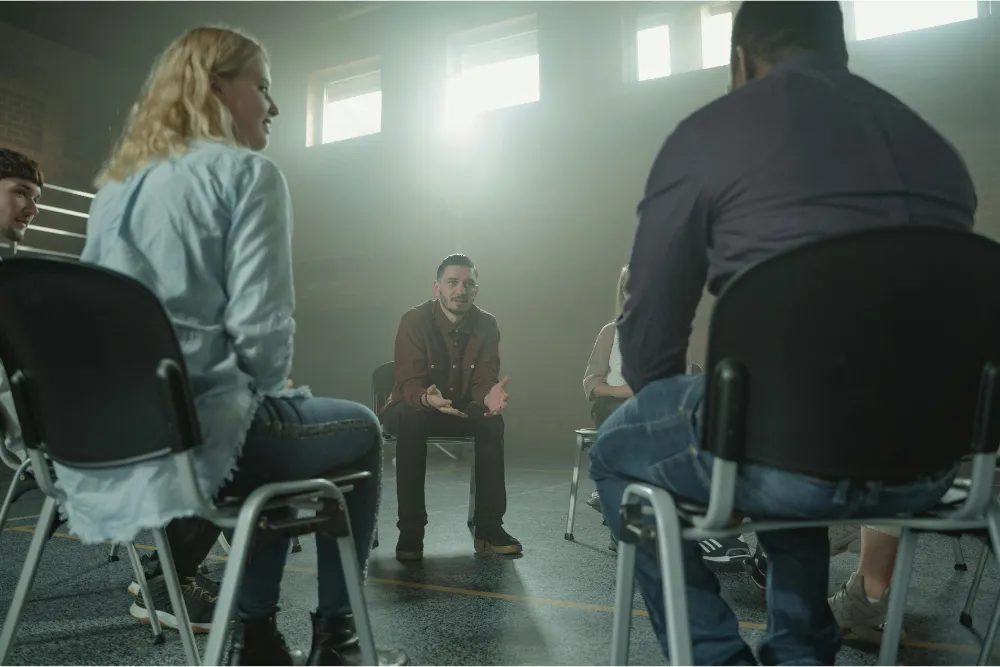Introduction
The mental health field is growing faster than ever, and as it expands, more and more individuals are looking for professionals who can help people with mental illnesses or behavioral problems. One of the finest and easiest methods to get into this field is to become a mental health technician. You’ll work closely with patients in this career, give them critical care, and be part of a team that aims to improve people’s lives. If you’ve ever wanted to know how to start a career as a mental health technician, this video will show you how to do it step by step.
What does a mental technician do?

A psychiatric technician, , works directly with patients in mental health facilities, hospitals, rehabilitation centers, or residential treatment programs. They have to accomplish some things, like Mental Health Technician.
Why is the Health Triangle Important for Wellness. Because true wellness means balancing physical, mental, and social health, and this balance is also reflected in the work mental health professionals do every day. Their responsibilities include watching how patients behave and monitoring their progress, helping with daily duties like eating, bathing, and exercising, assisting in therapy sessions and treatment programs, keeping accurate medical records, and ensuring safety in their environment.
By working directly with patients, they help bridge the gap between medical care and emotional support—promoting overall well-being and reinforcing the idea that all sides of the health triangle must be nurtured for lasting wellness.
Why Choose This Job?
Growing Job Demand: U.S. labor data show that the need for mental health care workers is always increasing. This indicates that anyone who desire to work in this field will have a high chance of getting a job. Meaningful Work: As a mental health technician, you have a direct and positive impact on people’s mental health and recovery, which makes your job tremendously rewarding. Many mental technicians use this position as a way to move up in their careers and become counselors, nurses, or social workers. This gives you the chance to move higher in your career over time.You can also read our article on What Mental Health Clipart for Awareness & Support where you will find more detailed information and helpful insights.
Know what the role is and what you need to do.
Education: Most organizations desire candidates to have at least a high school diploma, but many prefer people who have gone to college for psychology, human services, or nursing aid.Certification: You need to be certified to work in specific places, like as a Certified Mental Health Technician or Psychiatric Technician.Skills: You need to be able to understand how other people feel, talk to them, be patient, and be calm when things get hard.You can also read my article, which will give you more information and insights Need a Boost? Inspirational Quotes for Mental Health
Complete Your Education That Is Relevant

Certificate programs are short-term courses that teach the basics of mental health care.Associate Degrees: Two-year programs in areas including psychology, human services, or psychiatric technology.Internships with mental health centers or social service agencies.Give your time You can work in hospitals, community centers, or on crisis hotlines.Part-time jobs that involve caring for others, helping with nursing, or helping with rehabilitation.We have shared more tips on How to Find Top Long term Mental Health Facilities in this related article.
Get the Certifications You Need
After finishing a course and passing an exam, several states give out the Certified Psychiatric Technician (CPT) designation.Basic Life Support (BLS) Certification: A lot of jobs require their employees to know how to do CPR and first aid.Preventing and responding to crises Training shows you how to handle emergencies properly.Improve your resume and send out job applications on Mental Health Technician.
Education and certifications
Relevant work or volunteer experience.Crisis intervention, observation, and communication are all important skills.
Learn Important Skills That Will Help You Succeed in the Long Term
Active listening entails knowing what patients need without passing judgment.Problem Solving: Figuring things out when they get hard.Teamwork is when nurses, doctors, and therapists all work together.Being culturally sensitive involves being respectful of others who have diverse ideas and backgrounds.Being emotionally strong implies being able to deal with stress and aid others at the same time.
Keep Learning and Going Forward

Attend professional lectures and workshops.You could want to receive extra training in case management, counseling, or nursing.Look into degree programs if you want to get a better job, like a mental health counselor or a registered nurse.
Issues at Work
Taking care of patients that are violent or act in ways that are hard to predict.Dealing with emotional tiredness from being around folks who are always suffering mental health issues.Finding the right balance between being understanding and keeping your professional distance.
Benefits of Being a Mental Technician
Job Satisfaction It’s great to see people get better.Stability in your job: More and more people desire to work in mental health.Flexible Work Options: You can find work at different times and in different places.
FAQs
How do mental health technicians collaborate with other healthcare professionals?
They assist psychiatrists, nurses, and therapists through patient monitoring, reporting progress, documenting behavior, supporting treatment plans, facilitating group activities, and ensuring safe therapeutic environments.
What challenges do new mental health technicians face in their first year?
New technicians often face emotional stress, patient resistance, shift work fatigue, crisis management, communication barriers, adapting to treatment protocols, and balancing professional boundaries with empathy.
How can a mental health technician advance into specialized roles?
Advancement comes through certifications, continued education, clinical experience, specialized training, supervisory roles, pursuing nursing or psychology degrees, and leadership in mental health facilities.
Are mental health technicians involved in patient education and wellness activities?
Yes, they help patients learn coping skills, practice daily routines, develop social interaction, attend workshops, engage in recreational therapy, and follow structured wellness improvement programs.
Final Thoughts
If you want to help others, are patient, and want to make a difference, learning how to become a mental health technician could be the first step toward a meaningful and steady job. You can work with patients directly in this position, help them get better, and make the community healthier. You may get a good start on your career in this exciting field by following the steps in this guide. These steps involve learning about the work, getting an education, acquiring experience, and then going back to school. Learn what each state needs. Complete at least a certificate or associate degree program. Volunteer at mental health facilities to gain experience. Get crucial certifications like BLS and crisis intervention. To identify job vacancies, talk to people who work in the field.




